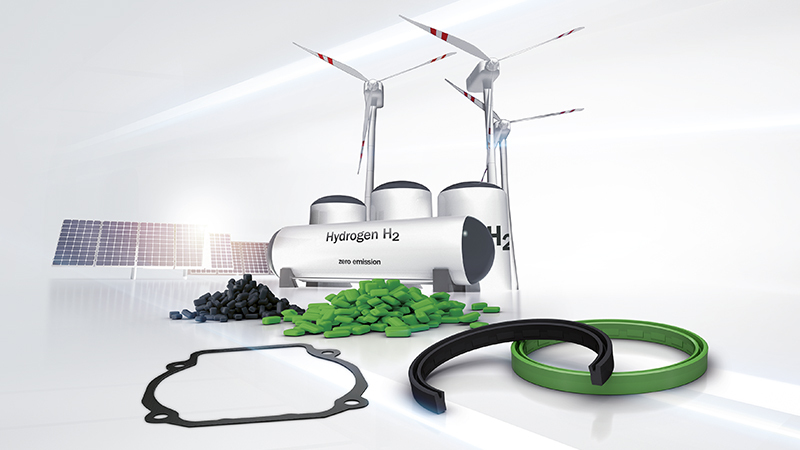
Trelleborg Sealing Solutions has announced the grand opening of its 1,000 square-feet hydrogen testing lab in Fort Wayne, Indiana. The lab space gives Trelleborg the capacity to expand its existing and future hydrogen testing capabilities.
The development is part of Trelleborg's strategic goal to be a leader in hydrogen sealing and testing to help customers navigate the challenges of the entire hydrogen value chain - generation, storage and transportation, end use and future hydrogen applications.
James Simpson, Global Segment Director of Energy, says: "There are limited polymer options that can be confidently recommended to seal hydrogen. There is also a lack of defined industry standards specifying how materials should be properly tested and verified to work effectively with hydrogen.

"Trelleborg is investing in its own approved hydrogen test rigs. Our experts design proprietary test programs to prove the performance of materials and provide customer confidence. We can help customers create custom solutions to meet application requirements and will develop our future capabilities to suit where the industry goes. We want to listen to customers and follow their lead."
Testing capabilities offered at the facility include hydrogen leak detection, compatibility, dynamic testing, and permeation testing which are all critical criteria for sealing hydrogen. Engineering experts can perform tests that replicate aggressive application conditions for rapid gas decompression, where hydrogen in a high-pressure system can be absorbed into a seal and if the pressure is suddenly relieved, gas trapped in the seal can expand, potentially causing the seal to blister and crack as the gas tries to escape. There are testing capabilities for pressures up to 15,000 PSI/1,034 bar and across all temperature ranges from cryogenic to above 350 °F/180 °C, and environmental thermal cycle testing at various pressure profiles.
John Mclaughlin, Director of Research and Development Services, says: "Future investments in hydrogen will be significant, as hydrogen is potentially transformative in the battle to reduce emissions. The market needs for hydrogen sealing components range from standard products to highly engineered solutions where few in the industry have extensive experience. We have materials and solutions that not only meet today's accepted criteria but are ready to scale up in future industrialised processes. We also are not dependent on external labs that are increasingly busy."
Trelleborg's H2Pro™ range is a portfolio of specially engineered and validated materials for use with hydrogen. It includes different compounds of ethylene propylene diene monomer rubbers (EPDM) for a wide variety of conditions, fluorocarbon (FKM) materials for high-temperature applications and silicones offering a wide operating temperature range. It also includes polyurethanes (PU) for extreme durability, thermoplastics such as polyterafluoroethylene (PTFE) and polyetheretherketone (PEEK), which excel in cryogenic and liquid hydrogen sealing, and metals for ultimate static sealing.


























